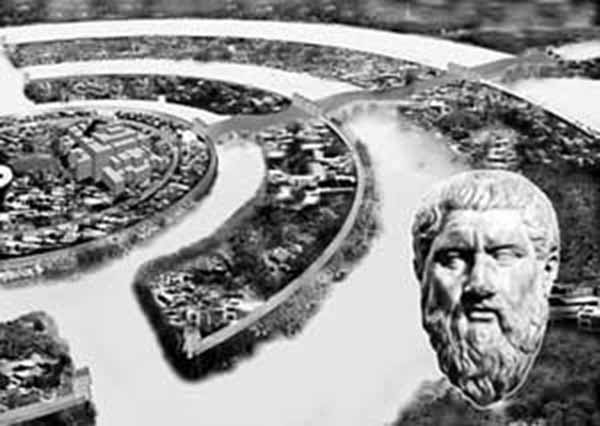
Here’s a shocking departure from my usual bloggerings. In returning to my Stories from Atlantis series, I’ve had my source material on my mind and figured I’d share some thoughts about it here.
I’ve set aside the angel project. My brain got wrapped around a street lamp, a plot and structure street lamp. The manuscript is in the intensive care unit in critical condition. That’s the last bad metaphor I’ll use and the last thing I’ll say about it.
Everyone thinks they know something about Atlantis—it sunk in the sea, its citizens took a space ship to another planet, or it’s protected beneath the ocean in a bubble. Nowadays, Atlantis is regarded as myth and legend, but that wasn’t always the case. In the 19th century and early 20th century, many respected archeologists and geologists believed they could find evidence of the ancient civilization. In the 1930s, “psychic” Edgar Cayce told people he communicated with Atlanteans during hypnotic trances. Cayce wrote a number of books about his paranormal conversations, and they were a lot less interesting than you might imagine.
Atlantis is part of our collective unconscious, a Jungian concept. The collective unconscious is a cerebral storehouse for universal ideas, inherited over generations. It’s the place for archetypes and myths, the flood story for example, or Ponce de Leon’s Fountain of Youth. In modern terms, you could say it’s the source of urban legends.
Psychology and “hard” science have only become distinct relatively recently. It was always a curiosity of mine how scientists sought to prove the veracity of Atlantis before the age of cold, rational science.
The classic source material comes from Plato who wrote about a technologically advanced society pre-dating the Greeks by 9,000 years. His description placed the ancient continent west of the Pillars of Heracles (the Strait of Gibraltar), so Plato “purists” went looking for evidence in the Atlantic Ocean off the coast of North Africa. Some, like British archeologist Lewis Spence, argued that the Canary Islands are vestiges of a much larger land mass that sunk. Only its highest mountain peaks remain above the water.
There’s a school of thought that says Plato was referring to the island of Santorini in the Mediterranean Sea where pre-Greek Minoan civilization thrived for years until it was destroyed suddenly by a volcano. Others have placed Atlantis in Indonesia or even North America. Cayce was “told” that the Atlanteans used to live in the Caribbean—the Bimini Islands.
While Spence never produced much in the way of compelling evidence, he launched a cultural diffusion theory that was wonderfully evocative. Comparing a host of ancient African, Central American and North American cultures, he noted a variety of similarities in language, religion and architecture (e.g. the pyramids). How could this have happened when cultures were separated by the unpassable Atlantic Ocean? Spence insists it was because there was a continent in the middle of the ocean facilitating travel. Spence believed that bull sacrifice was an important Atlantean tradition that was passed on to many cultures, even evident today through the popularity of bull fighting.
I’m predisposed to doubt just about everything, but it’s tempting to believe that Atlantis was real. If I was to believe, the most compelling explanation comes from geology. By Plato’s account, Atlantis disappeared around 10,000 B.C.E. That was the tail end of an ice age. So, it’s possible to imagine that while much of Europe was covered in glacier, some people migrated south to warmer climes and traveled a land bridge from coastal Spain to an island. There, with better terrain and an abundance of food, they developed a thriving society. But with global warming, ocean levels rose. The island was washed away. Maybe there were survivors who brought their language and traditions to other parts of the world. Maybe we’re all descendants of the Atlanteans.
For more about Lewis Spence, check out this.

1) Awww, the poor angel project!!
2) Yes, I believe in Atlantis!!
Keep believin’ Baby J!!
Amazing blog Thank You for posting.
Thanks Dawne. Glad you stopped by!
now this is one really good site here